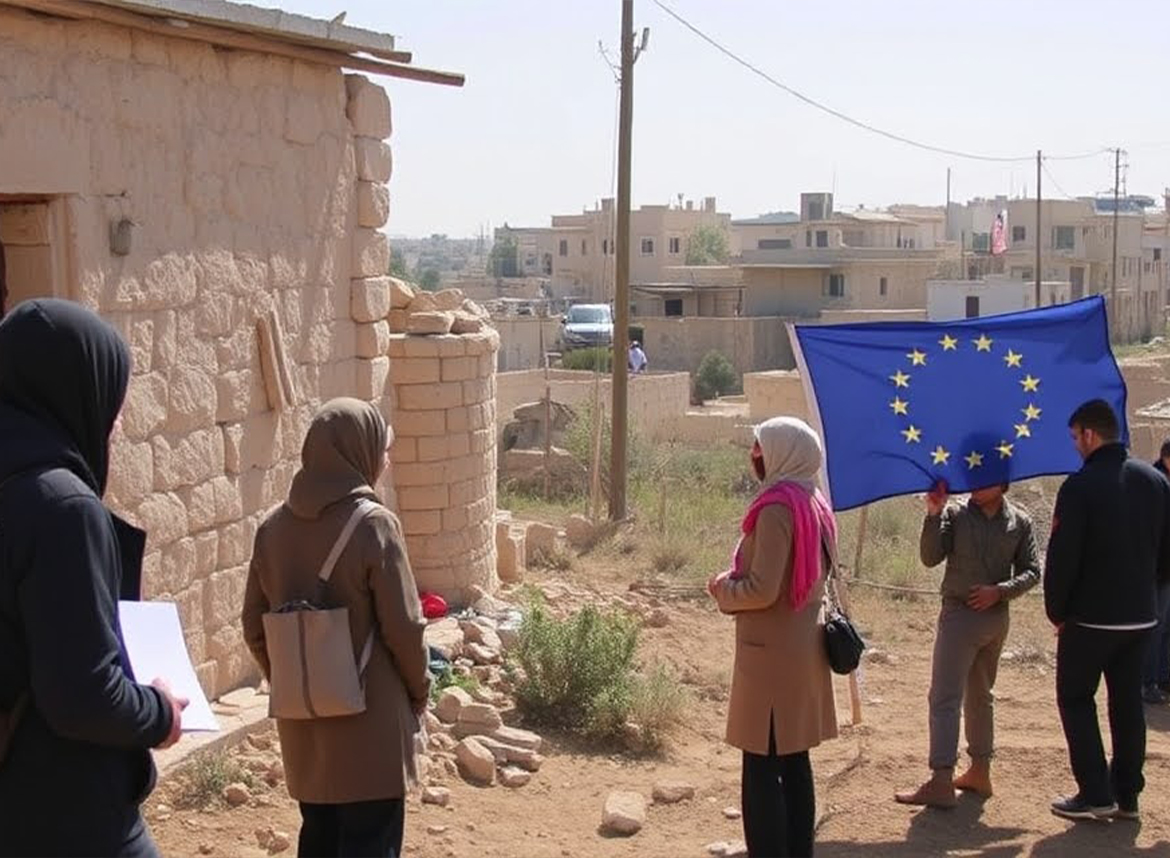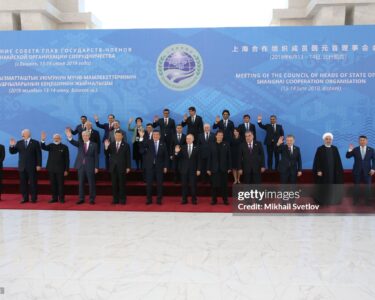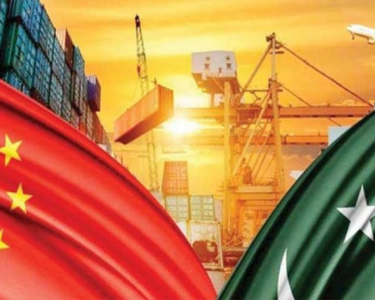The Israel and Palestine conflict in the Middle East has captured global attention for many years centered around the idea of a two-state solution. One where Israel and another independent Palestinian state coexist peacefully with mutual recognition and Jerusalem, serve as the future capital, in 2024 as both countries face changing roles and various challenges to overcome. In the past filled with conflicts and temporary ceasefires changing directions, towards paths is becoming a priority for both sides involved in the situation. For this purpose, the EU is playing a role in facilitating the Middle East Peace Process.
The year 2024 holds importance in the fraught history of Israel and Palestine as they strive towards peaceful coexistence despite their historical conflicts. Israel’s participation in the peace process is diverse and vital due to its influence and military strength along with its global connections. Lately, in Israel’s policies there has been a move towards increased interaction and conversation as they recognize that achieving lasting peace necessitates finding beneficial solutions, for both Israelis and Palestinians.
Amidst these regional dynamics, the European Union (EU) is emerging as a significant player in bolstering peace efforts. Historically, the EU has maintained a policy supporting the two-state solution, advocating for a peaceful and negotiated settlement of the conflict. In recent years, its role has expanded beyond diplomatic rhetoric into active engagement. Supporting various humanitarian programs and infrastructure projects in Palestine, the EU’s contributions are aimed at improving the everyday lives of Palestinians and fostering sustainable development.
On the other hand, Palestine persists in its pursuit of self-rule and autonomy. Despite facing various obstacles such as struggles and political uncertainty the Palestinian authorities and populace have been actively working towards unity and improvement. There is growing emphasis towards establishing frameworks that uphold democratic values and human rights. aiming to establish itself as a dependable entity advocating for its people, in both Gaza and the West Bank. This positive path is supported, in part, by a growing sense of national identity, emphasizing peace as a vital part of future prosperity.
Amid these shifts, in the region’s landscape the European Union (EU) is asserting its role in forward-moving peace efforts. It has continuously supported the concept of a two-state solution to bring about a negotiated resolution to the conflict. From issuing declarations to participating in practical initiatives the EUs engagement has expanded over time. Investments in projects and infrastructure in Palestine reflect the EUs commitment to improving the lives of Palestinians and fostering development.
The European Union has been providing financial support and technical support to focus specifically on education, healthcare and economic growth in the Palestinian territories. These initiatives aim to empower the community by creating conditions that support peace efforts through poverty reduction and self-sufficiency. Furthermore, the EU actively promotes communication, between groups with the goal of establishing a unified stance for meaningful participation, in peace discussions.
Moreover, the European Union has a long lasting commitment to the vision of a sovereign state of Palestine and also it has been working towards increasing its influence by facilitating dialogue between Israel and Palestine. This effort demonstrates the EUs dedication to playing a role in peace talks with its diplomatic capabilities and reputation as a fair and stable entity in international relations. The European Union focuses on working with global organizations such as the UN and the US to align worldwide initiatives, for achieving peaceful resolution.
The European Union is the most important supporter for the Palestinian people and is seen as a trustworthy and consistent partner in various aspects of Palestinian society – ranging from assisting in the development of a future Palestinian State to enhancing infrastructure throughout Palestine and backing local civil organizations. Since 2007 until now the EU has allocated over EUR 12 billion in aid to the Palestinian Territories. Has made significant investments in improving Palestinian infrastructure facilities along with fostering institutional growth and policy enhancements. The EU continues to be the supporter of the Palestinian Authority, by providing support for its expenses and programs that promote improvements in the security sector structure and the independence of the judiciary system while enhancing the effectiveness of public administration efforts. Moreover, the EU supports community based projects to strengthen society in Palestine with the goal of promoting grassroots democratic governance.
Moreover, the EU facilitates the Middle East Peace Process (MEPP) by leveraging its influence within international multilateral frameworks like the United Nations and the Quartet on the Middle East. Through diplomatic channels, the EU advocates for constructive engagement from both Israeli and Palestinian sides. By encouraging transparency and cooperation, the EU aims to diminish discord while establishing a foundation for lengthy peace agreements and reconciliation processes.
In recent times, the European Union has been placing emphasis on engaging and educating people, in Palestine as a key element, for lasting peace. Recognizing the importance of empowering generations, the EU is providing exchange programs, vocational training opportunities and entrepreneurship initiatives to equip Palestinian youth with the essential skills needed for contributing to economic progress. By promoting development, the EUs approach shows its understanding that socio economic empowerment is closely linked to building peace in the region.
Simultaneously, the EU faces the challenge of backing Israel’s security interest while also respecting the self-determination rights of Palestinians. By engaging in diplomacy, with both Israel and Palestine the EU hopes to play a role in fostering reconciliation and facilitating discussions between opposing sides to achieve resolutions through negotiation.
Although the EU holds influence, in the region there are ongoing challenges that complicate peacebuilding efforts in Palestine. One key issue is the divisions among Palestinian factions like Fatah and Hamas which need to be resolved to establish a cohesive governance structure. This unity is crucial for peace negotiations and the implementation of needed developmental reforms. Additionally addressing concerns in Gaza where there are blockades, in place remains a top priority to improve living conditions and mitigate persistent human suffering
The ongoing Israeli settlement policies still affect peace efforts. This leads to disagreements that complicate the possibility of a connected Palestinian state emerging smoothly.EU is consistently against expanding settlements and consistently advocates for following laws related to occupation. By backing concerns in legal settings the EU confirms its stance on achieving peace through justice.
In this scenario the EU must work alongside other global partners as well. They aim to synchronize views with EU players involved in Middle Eastern peace efforts, like the United States, Russia and Gulf states. The goal is to promote policies that enhance negotiations without escalating conflicts.
As of 2024, optimism persists amid ongoing complexities, driven primarily by the cumulative desire for peace from myriad local and international stakeholders. While the path toward a stable and equitable future for Israel and Palestine is riddled with existential and pragmatic challenges, enhanced strategic collaboration among global actors, including the EU, offers viable avenues for advancement. By harnessing multilateral synergies alongside local empowerment, the international community, led by entities like the EU, aspires to lay the groundwork for a meaningful and lasting resolution to one of the world’s most persistent conflicts.
Looking forward, the EU committed to fostering peace in Palestine which requires adjustments in response to changing geopolitical dynamics. As the global power changes, the EU may take on a role by introducing new strategies that focus on digital advancements, environmentally sustainable resource management and bolstered resilience against climate change in Palestine. Areas that are becoming ever more essential for socio economic stability, in this modern era of the 21st century.
In 2024 and beyond there is hope despite the challenges faced by Israel and Palestine. Various local and international parties are striving for peace, which fuels optimism for a future. Though the journey ahead is tough cooperation, globally like the EU, provides opportunities for progress. Through combining cooperation, with empowering communities together with organizations such as the European Union (EU) the world hopes to establish a solid foundation for a significant and lasting resolution to one of the most enduring conflicts globally.




